
Entertainment
-
 DiscoverEU marks 40 years of Schengen with 40,000 free travel passes for young Europeans
The European Commission is celebrating the 40th anniversary of the Schengen Area by offering 40,000 young Europeans the chance to explore the continent through DiscoverEU, part of the31 October 2025Read More...
DiscoverEU marks 40 years of Schengen with 40,000 free travel passes for young Europeans
The European Commission is celebrating the 40th anniversary of the Schengen Area by offering 40,000 young Europeans the chance to explore the continent through DiscoverEU, part of the31 October 2025Read More... -
 Brussels universities to award honorary doctorates to Stromae, Lize Spit, and Amélie Nothomb
The Vrije Universiteit Brussel (VUB) announced on Monday that Stromae, Lize Spit, Amélie Nothomb, François Schuiten, and Ever Meulen will receive joint honorary doctorates from VUB and27 October 2025Read More...
Brussels universities to award honorary doctorates to Stromae, Lize Spit, and Amélie Nothomb
The Vrije Universiteit Brussel (VUB) announced on Monday that Stromae, Lize Spit, Amélie Nothomb, François Schuiten, and Ever Meulen will receive joint honorary doctorates from VUB and27 October 2025Read More... -
 Stolen Renaissance masterpiece returns to Italy after 52 years
After more than half a century, a stolen Renaissance painting has finally returned home to Italy. *Madonna with Child*, a tempera-on-wood masterpiece by Venetian painter Antonio Solario,31 July 2025Read More...
Stolen Renaissance masterpiece returns to Italy after 52 years
After more than half a century, a stolen Renaissance painting has finally returned home to Italy. *Madonna with Child*, a tempera-on-wood masterpiece by Venetian painter Antonio Solario,31 July 2025Read More... -
 Belgian seaside resorts: highlights of royal De Panne
While Ostend is often dubbed the queen of Belgium’s seaside resorts, the country’s coastline offers many other gems worth discovering. In this series, Belga English explores four distinctive20 July 2025Read More...
Belgian seaside resorts: highlights of royal De Panne
While Ostend is often dubbed the queen of Belgium’s seaside resorts, the country’s coastline offers many other gems worth discovering. In this series, Belga English explores four distinctive20 July 2025Read More... -
 Louis Vuitton named suspect in Dutch money laundering probe
Luxury fashion house Louis Vuitton has been named a suspect in a Dutch money laundering investigation, according to the Dutch Public Prosecution Service (OM). The OM alleges that18 July 2025Read More...
Louis Vuitton named suspect in Dutch money laundering probe
Luxury fashion house Louis Vuitton has been named a suspect in a Dutch money laundering investigation, according to the Dutch Public Prosecution Service (OM). The OM alleges that18 July 2025Read More... -
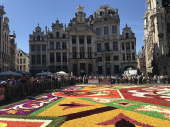 Brussels tops global rankings for international meetings as tourism soars to new heights
Brussels has once again secured its position as the world’s top city for international meetings, according to the latest annual report from the Union of International Associations (UIA).26 June 2025Read More...
Brussels tops global rankings for international meetings as tourism soars to new heights
Brussels has once again secured its position as the world’s top city for international meetings, according to the latest annual report from the Union of International Associations (UIA).26 June 2025Read More... -
 Coffee prices keep climbing in Czech establishments
The cost of a cup of coffee in Czech restaurants and cafés has increased by 4% over the past year, now averaging CZK 57.80, according to data from the Dotykačka point-of-sale system.15 June 2025Read More...
Coffee prices keep climbing in Czech establishments
The cost of a cup of coffee in Czech restaurants and cafés has increased by 4% over the past year, now averaging CZK 57.80, according to data from the Dotykačka point-of-sale system.15 June 2025Read More...
Politics
-
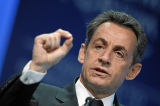 France’s former President Sarkozy to begin appeal trial over Libyan Funding allegations
Former French President Nicolas Sarkozy is set to appear in a Paris court on March 16 for the start of his appeal trial over allegations of illegal campaignRead More...
France’s former President Sarkozy to begin appeal trial over Libyan Funding allegations
Former French President Nicolas Sarkozy is set to appear in a Paris court on March 16 for the start of his appeal trial over allegations of illegal campaignRead More... -
 French parliament poised to halt Macron’s pension reform amid budget Turmoil
French lawmakers are expected to vote Wednesday to suspend President Emmanuel Macron’s controversial pension reform, as the government battles to push next year’s budget through aRead More...
French parliament poised to halt Macron’s pension reform amid budget Turmoil
French lawmakers are expected to vote Wednesday to suspend President Emmanuel Macron’s controversial pension reform, as the government battles to push next year’s budget through aRead More... -
 Ex-minister Ziobro rejects corruption allegations, labels case political
Former Polish justice minister Zbigniew Ziobro vowed on Saturday to pursue “legal and political” action after parliament voted to lift his immunity, clearing the way for prosecutors to bringRead More...
Ex-minister Ziobro rejects corruption allegations, labels case political
Former Polish justice minister Zbigniew Ziobro vowed on Saturday to pursue “legal and political” action after parliament voted to lift his immunity, clearing the way for prosecutors to bringRead More... -
 Pro-Russian hackers briefly disrupt Belgian Telecom websites in DDoS attack
A wave of DDoS attacks briefly disrupted the websites of Belgian telecom operators Proximus and Scarlet on Wednesday morning, with the pro-Russian hacker group NoName057 claimingRead More...
Pro-Russian hackers briefly disrupt Belgian Telecom websites in DDoS attack
A wave of DDoS attacks briefly disrupted the websites of Belgian telecom operators Proximus and Scarlet on Wednesday morning, with the pro-Russian hacker group NoName057 claimingRead More... -
 French Parliament weighs wealth tax as budget gap looms
France’s government on Friday defended its proposed alternative to a sweeping tax on the ultra-rich, as lawmakers clashed over how to tap the country’s highest fortunes to help close aRead More...
French Parliament weighs wealth tax as budget gap looms
France’s government on Friday defended its proposed alternative to a sweeping tax on the ultra-rich, as lawmakers clashed over how to tap the country’s highest fortunes to help close aRead More...
News
-
 Swiss army has “gone back to sleep,” says departing chief
Switzerland briefly awakened to the urgency of national defence following Russia’s 2022 invasion of Ukraine — but has since drifted back into complacency, outgoingRead More...
Swiss army has “gone back to sleep,” says departing chief
Switzerland briefly awakened to the urgency of national defence following Russia’s 2022 invasion of Ukraine — but has since drifted back into complacency, outgoingRead More... -
 Poland and Germany to seal new defence pact in 2026, leaders announce
Polish Prime Minister Donald Tusk and German Chancellor Friedrich Merz said on Monday that their governments plan to sign a new bilateral defence agreement nextRead More...
Poland and Germany to seal new defence pact in 2026, leaders announce
Polish Prime Minister Donald Tusk and German Chancellor Friedrich Merz said on Monday that their governments plan to sign a new bilateral defence agreement nextRead More... -
 Monegasque Language Committee resumes its work
Following the publication of Sovereign Ordinance No. 11,219 on 7 May 2025, which appointed the members of the Monegasque Language Committee, the group has officially reconvened atRead More...
Monegasque Language Committee resumes its work
Following the publication of Sovereign Ordinance No. 11,219 on 7 May 2025, which appointed the members of the Monegasque Language Committee, the group has officially reconvened atRead More... -
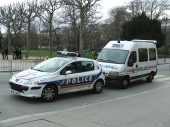 France arrests four, including two Russian nationals, on espionage suspicions
French authorities have arrested four people — including two Russian nationals — as part of an investigation into suspected espionage conducted on behalf of a foreign state, the ParisRead More...
France arrests four, including two Russian nationals, on espionage suspicions
French authorities have arrested four people — including two Russian nationals — as part of an investigation into suspected espionage conducted on behalf of a foreign state, the ParisRead More... -
 German home prices expected to climb over 3% annually, pressuring affordability for new buyers
German residential property prices are poised to grow by more than 3% a year in the coming years, according to a Reuters poll of property analysts, raising fresh concerns about housingRead More...
German home prices expected to climb over 3% annually, pressuring affordability for new buyers
German residential property prices are poised to grow by more than 3% a year in the coming years, according to a Reuters poll of property analysts, raising fresh concerns about housingRead More... -
 UN convention to review environmental complaint over France’s 2030 Winter Olympics
A United Nations environmental body has agreed to examine a complaint accusing France of violating international transparency and public-participation rules during preparations for the 2030Read More...
UN convention to review environmental complaint over France’s 2030 Winter Olympics
A United Nations environmental body has agreed to examine a complaint accusing France of violating international transparency and public-participation rules during preparations for the 2030Read More... -
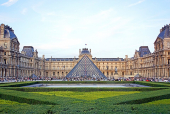 Louvre closes major gallery over structural concerns amid ongoing security scrutiny
The Louvre Museum in Paris has closed one of its key galleries after engineers identified structural weaknesses in parts of the historic building, adding fresh unease to an institution alreadyRead More...
Louvre closes major gallery over structural concerns amid ongoing security scrutiny
The Louvre Museum in Paris has closed one of its key galleries after engineers identified structural weaknesses in parts of the historic building, adding fresh unease to an institution alreadyRead More... -
 EU reaches provisional €192.8 billion budget deal for 2026, boosting research, security and competitiveness
EU lawmakers struck a provisional agreement early Saturday on the bloc’s 2026 budget, securing hundreds of millions in additional funding for research,Read More...
EU reaches provisional €192.8 billion budget deal for 2026, boosting research, security and competitiveness
EU lawmakers struck a provisional agreement early Saturday on the bloc’s 2026 budget, securing hundreds of millions in additional funding for research,Read More... -
 Germany to invest €26.5 billion in soldier equipment and armoured vehicles
Germany is set to channel €26.5 billion into modernising troop gear and expanding its fleet of wheeled armoured vehicles over the next decade, according to a finance ministry document seenRead More...
Germany to invest €26.5 billion in soldier equipment and armoured vehicles
Germany is set to channel €26.5 billion into modernising troop gear and expanding its fleet of wheeled armoured vehicles over the next decade, according to a finance ministry document seenRead More...

Most Read
- Teen held after US woman killed in London stabbings
- Football: Farhad Moshiri adamant Everton deal above board
- Greece hails new post-bailout chapter but concerns remain
- The Kokorev case caused wide discussion in Brussels
- EU accession talks stir debate in Moldova: insights from Gagauzia's leader, Yevgenia Gutsul
Economics
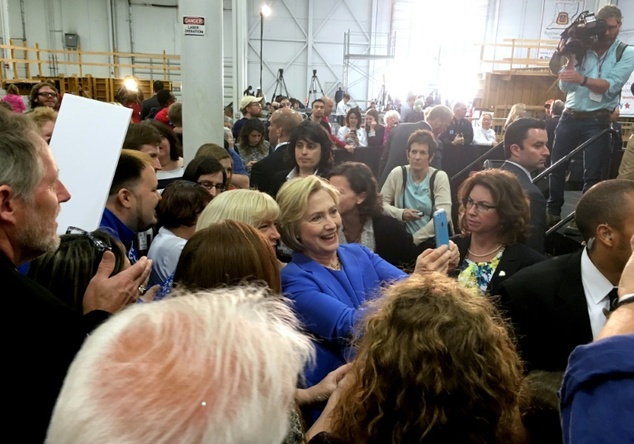
Hillary Clinton claimed a narrow victory in Kentucky as she sought to put away Bernie Sanders, but her resilient rival for the Democratic presidential nomination bounced back to snatch a win in Oregon.
With the Kentucky race too close for most US networks to call a winner, Clinton declared victory shortly after Kentucky's secretary of state Alison Lundergan Grimes announced on CNN that Clinton was the unofficial winner in her state.
"We just won Kentucky! Thanks to everyone who turned out," Clinton tweeted.
With 99.8 percent of Blue Grass state precincts reporting, Clinton led Sanders by 46.8 percent to 46.3 percent -- a margin of less than 2,000 votes.
Should the results hold, the win would blunt Sanders's momentum and help Clinton move closer toward clinching the Democratic presidential nomination.
But the psychological win was short-lived. Half an hour after polls closed in Oregon, US networks projected Sanders the winner there, besting Clinton 53 percent to 47 percent.
"We just won Oregon, and we're going to win California," Sanders told thousands of supporters in Carson, California as he predicted victory in the nation's largest state, which votes on June 7. Sanders, a self-declared democratic socialist, declared he would not be forced out of the race by narrow Clinton wins.
"It appears tonight that we're going to end up with about half the delegates" in Kentucky, Sanders told the raucous rally.
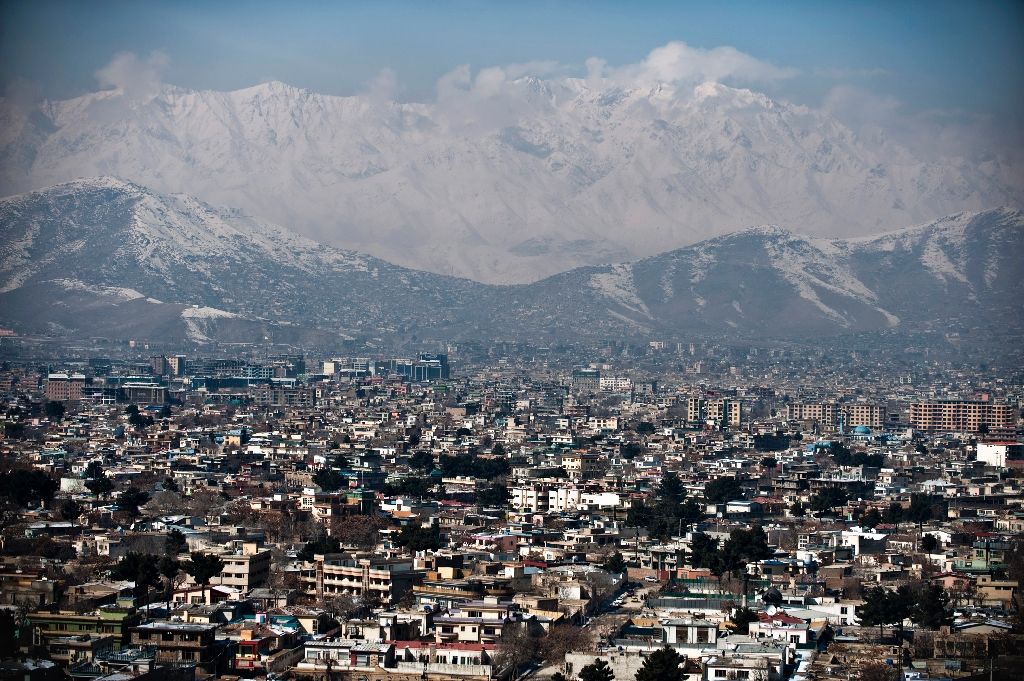
Afghanistan's capital was under lockdown Monday as thousands of minority Shiite Hazaras launched protests over a multi-million-dollar power transmission line, in what could snowball into a political crisis for the beleaguered government.
Security forces blocked key intersections with stacked-up shipping containers in Kabul as the protesters sought to march on the presidential palace, demanding that the electricity line linking energy-rich central Asia pass through a central Hazara-dominated area.
The protest spotlights the turbulent politics in the war-torn nation and follows a massive rally last November galvanised by the beheadings of a group of Hazaras, which symbolised growing public discontent with President Ashraf Ghani's regime.
"Tens of thousands of people are expected to join the massive protest and march towards the presidential palace," Hazara lawmaker Arif Rahmani told AFP.
"We want the power line to cross through Bamiyan, which has seen no development in 15 years. We are demanding justice, not charity."
The 500 kilovolt TUTAP power line, which would connect the Central Asian nations of Turkmenistan, Uzbekistan and Tajikistan with Afghanistan and Pakistan, is regarded a crucial infrastructure project in the electricity-starved region.
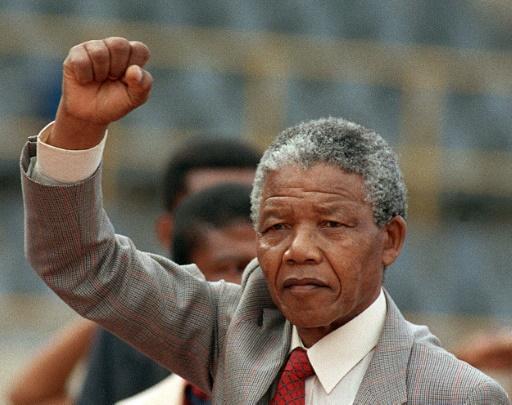
A tip from a CIA spy to authorities in apartheid-era South Africa led to Nelson Mandela's arrest, beginning the leader's 27 years behind bars, a report said on Sunday.
Donald Rickard, a former US vice-consul in Durban and CIA operative, told British film director John Irvin that he had been involved in Mandela's arrest in 1962 which was seen as necessary because the Americans believed he was "completely under the control of the Soviet Union", the report in The Sunday Times newspaper said.
"He could have incited a war in South Africa, the United States would have to get involved, grudgingly, and things could have gone to hell," Rickard said.
"We were teetering on the brink here and it had to be stopped, which meant Mandela had to be stopped. And I put a stop to it."
Irvin's new film "Mandela's Gun", about the months before the anti-apartheid leader's arrest, is due to be screened at the Cannes film festival this week.
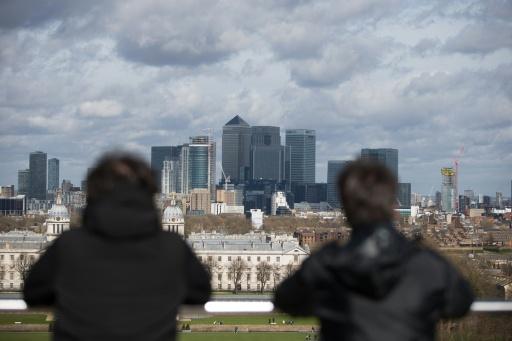
British Prime Minister David Cameron will push for global action on corruption at a summit Thursday attended by the leaders of Nigeria and Afghanistan, countries he was caught describing as "fantastically corrupt".
Nigerian President Muhammadu Buhari and Afghanistan's Ashraf Ghani are attending the London summit alongside the Colombian president, US Secretary of State John Kerry, NGOs and the leaders of the World Bank and IMF.
Cameron has described corruption as "an enemy of progress and the root of so many of the world's problems" and says the summit, which comes amid public outrage over the Panama Papers leaks, will push it to the top of the global agenda.
But he risked embarrassment when he was caught on camera on Tuesday telling Queen Elizabeth II that leaders of some "fantastically corrupt countries" were attending, citing Nigeria and Afghanistan as "possibly the most corrupt".
Downing Street later said both Buhari and Ghani had admitted the challenges their countries face and were invited because of their commitment to tackling them.
- Anger over Panama leaks -
Campaigners are hoping for concrete action from the summit in response to public anger sparked by a huge leak of documents from a Panamanian law firm, which revealed in detail how the rich and powerful hide their money.
Activists want governments to expose the beneficiaries of anonymous companies used to move money without detection, and take further action to reduce the secrecy of offshore tax havens where they are incorporated.
There is also speculation that Cameron will announce measures to tackle money laundering through London's luxury property market, following his declaration last year that there was "no place for dirty money in Britain".
A British official said the summit declaration would commit signatories "to expose corruption wherever it is found, to pursue and punish those who perpetrate, facilitate or are complicit in it".
But The Times reported that a draft being circulated had been watered down following opposition from some countries, with one passage stating there would be "no impunity for the corrupt" removed.
The Russian foreign ministry, which is sending deputy foreign minister Oleg Syromolotov, has already indicated that any final agreement may not be binding.
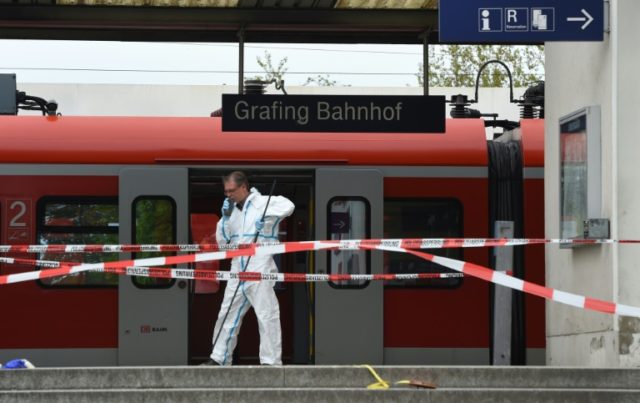
A German man stabbed to death one person and slashed three more Tuesday in what authorities said may have been an Islamist attack, without ruling out that the assailant suffered mental problems.
Police said they had arrested a 27-year-old German national who knifed four people around 5:00am (0300 GMT) at the commuter railway station of the small town of Grafing, east of Munich.
One of the victims, a 50-year-old man, later died of his wounds in hospital. The others injured were men aged 43, 55 and 58. One of the victims was seriously hurt, the other two more lightly wounded.
The "assailant made remarks at the scene of the crime that indicate a political motive -- apparently an Islamist motive," said Ken Heidenreich, spokesman for the prosecutor's office. "We are still determining what the exact remarks were."
Local media reported witnesses as saying the man had yelled "Allahu akbar" (God is greatest) and "you unbelievers" during the attack.
If a jihadist motive is confirmed, it would be the country's third Islamist-linked knife attack since September, but police were also investigating whether the assailant had previous psychological or drug problems.
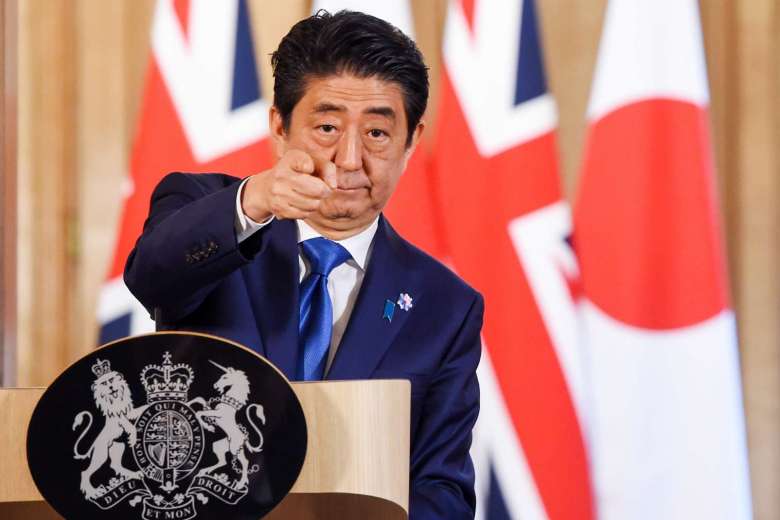
Prime Minister Shinzo Abe said on Thursday that "drastic fluctuations" in the yen's value risked having a major impact on the trade prospects of Japanese companies.
Abe said the current situation was "not desirable", during a visit to London.
The yen surged to an 18-month high against the dollar after the Bank of Japan (BoJ) decided last week not to unveil any fresh stimulus.
On Thursday afternoon, the dollar was at 107.13 yen, still way down from above 111 yen before the BoJ announcement.
A strong currency is damaging for Japan's exporting giants, such as Toyota and Sony, as it makes their goods more expensive overseas and shrinks the value of repatriated profits.
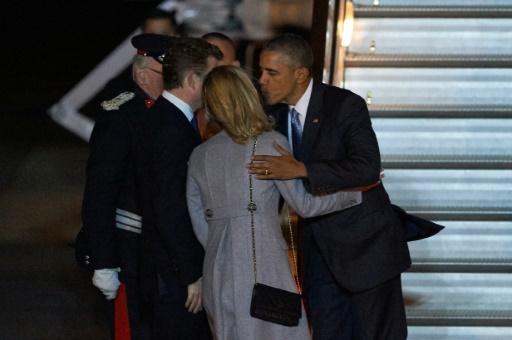
US President Barack Obama plunged into Britain's increasingly poisonous EU debate on Friday with a powerful warning against Brexit, arguing that US soldiers had laid down their lives for Europe.
Obama's rare foray into the domestic politics of another country comes ahead of Britain's EU membership referendum in June and drew a furious response from eurosceptics like London Mayor Boris Johnson.
Writing in the Daily Telegraph, a traditional bastion of euroscepticism, Obama argued that Britain's place in the European Union magnified its global influence and invoked the memory of US troops who died in two world wars.
"I realise that there's been considerable speculation -- and some controversy -- about the timing of my visit," he wrote in a piece published at the start of his four-day trip to Britain.
"I will say, with the candour of a friend, that the outcome of your decision is a matter of deep interest to the United States.
"Tens of thousands of Americans who rest in Europe's cemeteries are a silent testament to just how intertwined our prosperity and security truly are.
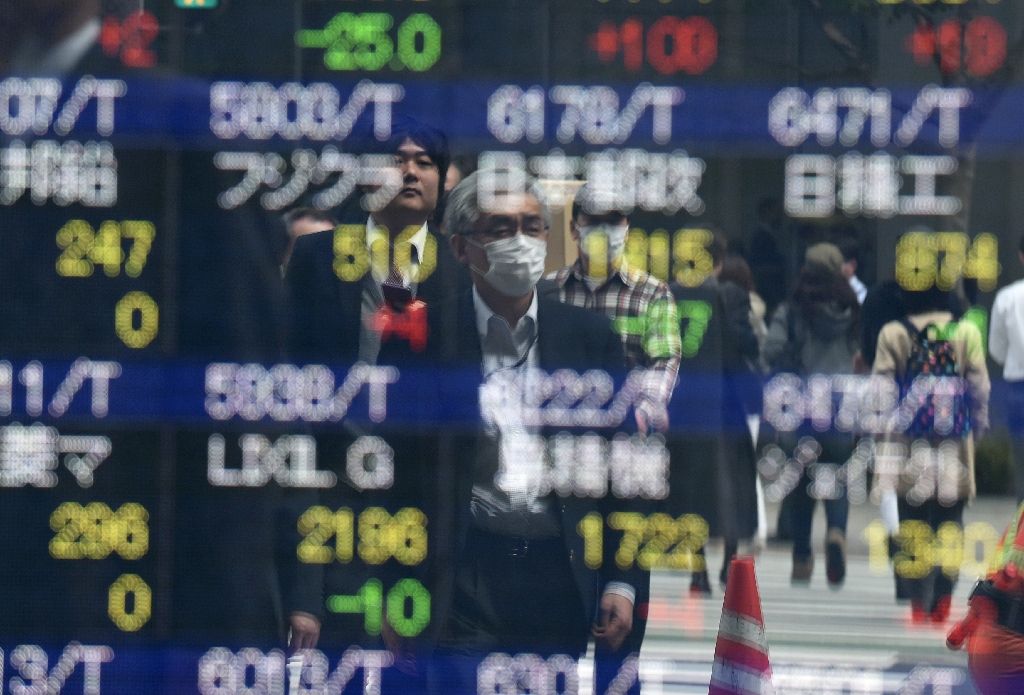
Stock markets rebounded in Europe on Friday but some stumbled in Asia, capping a volatile week as investors' concerns grow about the health of the global economy.
At around 1330 GMT, London's benchmark FTSE 100 index was up 0.9 percent compared with Thursday's close, aided by rising oil prices.
"There was a continued chirpiness to the global markets..., the FTSE even managing to hold onto its growth despite a woeful morning for UK data," said Spreadex analyst Connor Campbell, citing poor official manufacturing and trade figures.
In the eurozone, both Frankfurt's DAX 30 and the Paris CAC 40 rose by more than one percent in afternoon deals.
"The main catalyst for this growth seems to have been the strong German trade surplus figures," added Campbell, noting that dealers had "quickly forgotten" disappointing French industrial output data.
Rising oil prices also boosted Wall Street stocks which opened higher on Friday with the Dow Jones Industrial Average gaining 0.5 percent to stand at 17,633.94 points five minutes into trade.
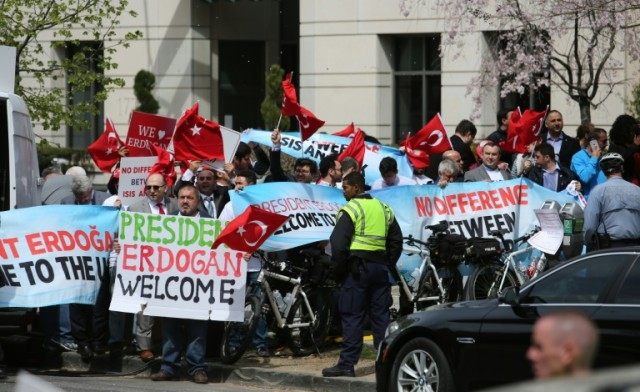
The White House said that US President Barack Obama met his Turkish counterpart in Washington, amid tensions over human rights and the crisis in Syria.

An eight-year-old French police dog was on Tuesday awarded a medal of honour for his exceptional sniffing skills, which netted authorities 7.5 million euros ($8.4 million) in drugs.
"There are good police officers in Marseille, but it seems this one is the best," said Pierre-Marie Bourniquel, the police chief for the area, as he decorated the dog.
The Belgian Shepherd, named Choc (Shock), sat quietly, tongue out and tail wagging, as the French national anthem was played and the medal for "bravery and devotion" placed around his neck.

















